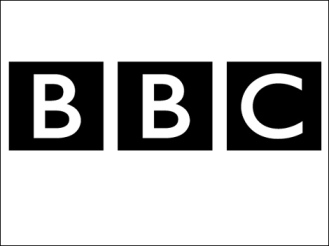
Chavez: Venezuela progressing towards food independence
CARACAS, June 14 (Xinhua) — Venezuelan President Hugo Chavez said on Sunday that the government has set targets for exporting food to neighbor countries and is progressing towards food independence.
During his weekly radio and television broadcast “Alo Presidente,” Chavez said Venezuela’s cattle herd now topped 12 million heads and is estimated to rise to 14 million by 2012.
Chavez hosted Sunday’s show from the La Bandera farm in southwestern state Tachira, a model socialist dairy farm set up on land seized from drug traffickers.
The Venezuelan government has seized 50 farms from traffickers, equivalent to 12,000 hectares suitable for livestock.
La Bandera now has 1,985 heads of cattle, up from 1,300 18 months ago; and produces 38 percent more milk, the Venezuelan president said.
Source: http://www.chinaview.cn
————————————-
Venezuela takes on Tetra Pak
Venezuela’s Hugo Chávez has threatened to ignore international patents and manufacture Tetra Paks to help reduce the need for imports.
Chávez told the audience of his weekly Aló Presidente show that patents were “universal knowledge” and Venezuela had the materials to produce the cartons itself. “We don’t have to be subject to capitalist laws,” he said.
Importing Tetra Pak materials is said to have cost the South American country $63m (£38.5m) in May alone. Tetra Pak was unavailable for comment at the time of publication.
Chávez targeted overseas packaging in March when he seized 1,500 hectares of eucalyptus forest belonging to Irish packaging giant Smurfit Kappa that he said should be destined for food rather than cardboard.
In yesterday’s broadcast, Chávez said the government would have to seize packaging firms that did not deal with national food companies, although did not provide further information.
Aló Presidente is now in its tenth year and runs on Sundays on state TV. It starts at 11am and has been known to run for five hours.
The segment of the show on Tetra Pak and patents can be viewed in Spanish via the YouTube website by clicking here.
Source: http://www.packagingnews.co.uk/RSS/News/913111/Venezuela-takes-Tetra-Pak/
——————————————–
Wrong type of passenger prompts Venezuela to redirect metro line
Plan for two stations in Caracas put on hold because it would have benefited ‘oligarchs’
Venezuela has redirected a new metro line away from a chic part of Caracas, one of Latin America’s most congested capitals, because it would have benefited “oligarchs”.
Authorities cancelled plans for two metro stations at Las Mercedes, a district of malls and restaurants, because it would serve the wrong type of passenger in a country undergoing a socialist revolution.
“That is a line which benefits the oligarchy,” said Claudio Farias, president of the state-owned company Metro Caracas. “We are redesigning it because we think this line makes no sense. Everybody goes to restaurants in Las Mercedes in their cars.”
Under redesigned plans five stations will be dropped from line five, which is intended to carry about 300,000 passengers daily from the central Zona Rental to low-income areas in the south-east.
Source: http://www.guardian.co.uk/world/2009/jun/15/venezuela-metro-redirected
—————————————-
Venezuela Orders End to Coca-Cola Zero Production

On Wednesday the Venezuelan Ministry for Health ordered the Coca-Cola Company to remove its product Coca-Cola Zero from sale for containing a cancerous ingredient, sodium cyclamate, an ingredient not included in the US version of the drink.
Jesus Mantilla, the health minister, said, “The product should stop circulating in order to protect the health of Venezuelans.” He said the product contains sodium cyclamate, which in large amounts can be harmful, and then announced that the product should be recalled, destroyed, and not produced anymore.
Divis Antunez, director of sanitary control for the Health Ministry, said the ingredient wasn’t in the company’s application that it made in 2007 and that was approved by the Ministry. Later, in a random test conducted by the National Institute for Hygiene Rafael Rangel, sodium cyclamate was found and the Health Ministry started a legal process for non-compliance with the Health Registry.
Antunez said that the recommended amount of sodium cyclamate for human consumption is 11 mg per kilo, whereas the new Coca-Cola Zero has 18-22mg per 10 mils, exceeding the amount approved by the Venezuelan Commission of Industrial Norms (COVENIN).
Yesterday Coca-Cola said in a press release, “The Coca-Cola Company and its bottler Coca-Cola Femsa Venezuela responsibly declare that Coca-Cola Zero doesn’t contain any ingredient that could be harmful to the health.” However, Coca-Cola said that until the government concludes its administrative proceedings it will suspend production in Venezuela and recall the drink.
Coca-Cola Zero is a drink without any calories (or an amount small enough to be rounded down to zero) and is marketed to young males who are self conscious of their weight but see Diet Coke as being for women. The diet and zero versions in the US, England, and Canada both contain non-calorie sweeteners aspartame (E951) and acesulfame K (E950), but in slightly different proportions and they therefore have slightly different tastes.
However the versions produced in Venezuela (as well as in Chile and some other Central American countries) have sodium cyclamate (E952) in larger proportions than aspartame. Whilst aspartame is cleared by the US Food and Drug Administration (FDA), sodium cyclamate has been prohibited since 1969 when it was proved to cause cancerous tumours and congenital malformations.
Sodium cyclamate, when combined with other chemicals, has the capacity to sweeten up to 600 times more than sugar. According to Aporrea.org, it is also much cheaper than aspartame at $10/kilo compared to $152/kilo for aspartame.
In Mexico in August 2007, El Universal-Mexico reported that Coca-Cola was also putting sodium cyclamate in the coca-cola zero drink there. The article said that the drink contained 25mg of the ingredient for every 100g in a can of 355ml. Pro-U.S president Vicente Fox authorized the ingredient for the government’s list of permitted food additives in July 2006.
In February 2008 Mexican feminist news Cimanoticias reported that consumers had “triumphed” and that the ingredient had been removed from the drink.
Source: http://www.venezuelanalysis.com/news/4516











